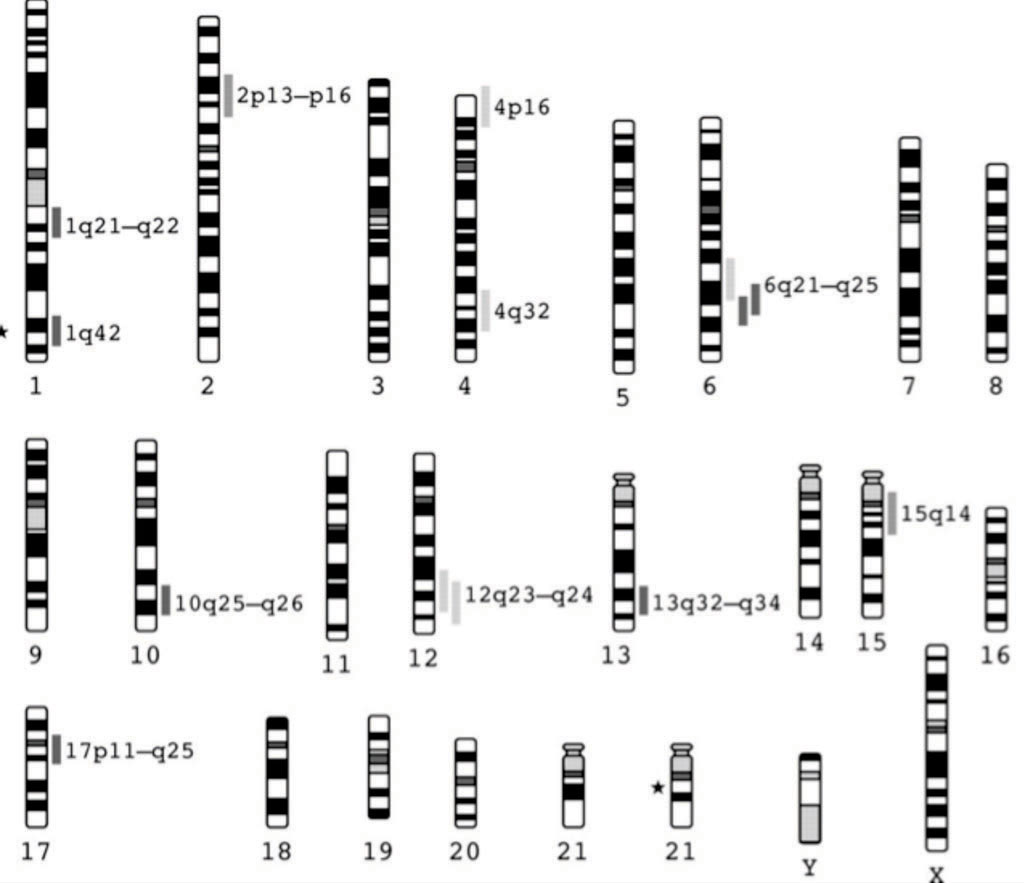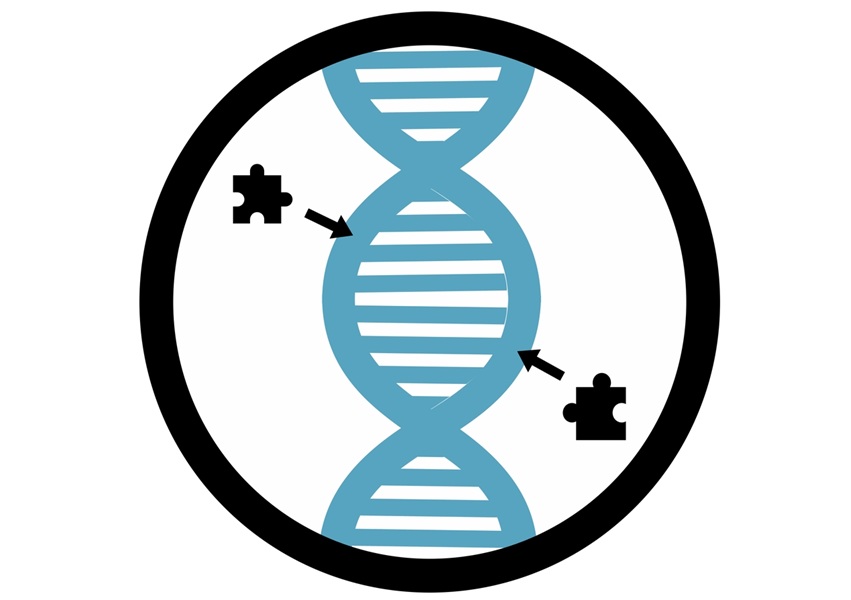Rare Genetic Variations Linked to Schizophrenia
By LabMedica International staff writers
Posted on 09 Dec 2016
Genetic variations that increase schizophrenia risk are rare, making it difficult to study their role and to overcome this. Recently, the genomes of more than 41,000 people have been analyzed in the largest study of its kind to date.Posted on 09 Dec 2016
The mutations, known as copy number variants, are deletions or duplications of the DNA sequence. A copy number variant (CNC) may affect dozens of genes, or it can disrupt or duplicate a single gene. This type of variation can cause significant alterations to the genome and lead to psychiatric disorders.

Image: Chromosome ideograms showing some locations of genome-wide significant linkages in schizophrenia and bipolar disorder. Asterisks mark the locations of chromosomal abnormalities associated with schizophrenia (Photo courtesy of SPL).
A large team of international scientists led by those at the University of California, San Diego School of Medicine (La Jolla, CA, USA) analyzed the genomes of 21,094 people with schizophrenia and 20,227 people without schizophrenia. They found eight locations in the genome with copy number variants associated with schizophrenia risk. Only a small fraction of cases (1.4%) carried these variants. The team also found that these copy number variants occurred more frequently in genes involved in the function of synapses, the connections between brain cells that transmit chemical messages.
Genome-wide significant evidence was obtained for eight loci, including 1q21.1, 2p16.3 (NRXN1), 3q29, 7q11.2, 15q13.3, distal 16p11.2, proximal 16p11.2 and 22q11.2. Suggestive support was found for eight additional candidate susceptibility and protective loci, which consisted predominantly of CNVs mediated by non-allelic homologous recombination. With its large sample size, this study had the power to find copy number variants with large effects that occur in more than 0.1%of schizophrenia cases. However, the team said they are still missing many variants. More analyses will be needed to detect risk variants with smaller effects, or ultra-rare variants.
Jonathan Sebat, PhD, a Professor of Psychiatry and Cellular and Molecular Medicine and the lead investigator of the study said, “This study represents a milestone that demonstrates what large collaborations in psychiatric genetics can accomplish. We are confident that applying this same approach to a lot of new data will help us discover additional genomic variations and identify specific genes that play a role in schizophrenia and other psychiatric conditions.” The study was published on November 21, 2016, in the journal Nature Genetics.
Related Links:
University of California, San Diego School of Medicine













